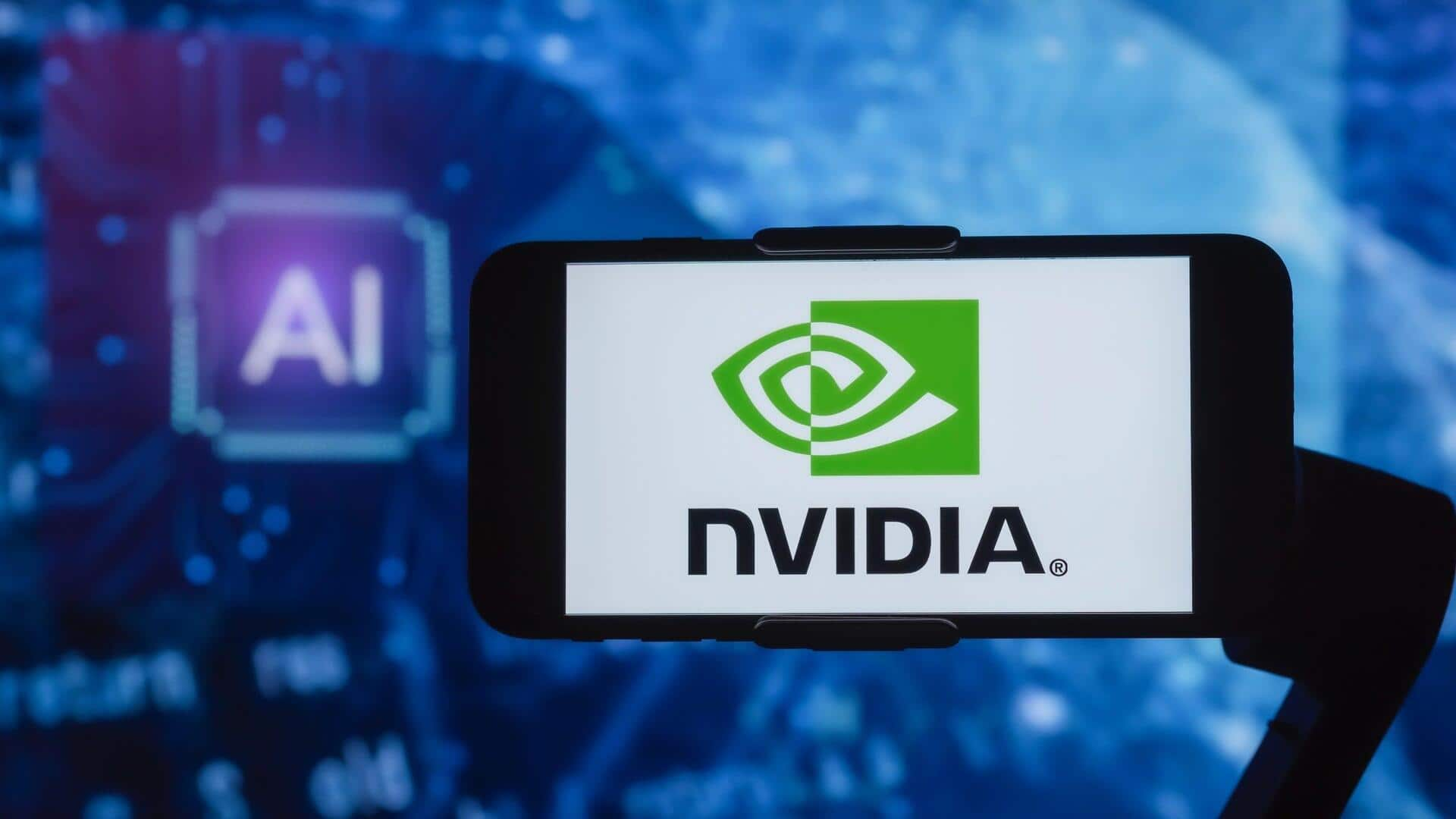
NVIDIA unveils AI system to accelerate genetic research
What's the story
NVIDIA and its research partners have unveiled Evo 2, a revolutionary artificial intelligence (AI) system for biological studies. The cutting-edge AI platform aims to accelerate the progress of genetics and medicine by quickly analyzing and creating genetic code from different life forms. It is touted as the largest AI system yet for biological research. The idea is to drastically accelerate research processes that would otherwise take a lot of manual data analysis.
Information processing
Evo 2's extensive learning from trillions of genetic data
Evo 2 has been trained on nearly nine trillion pieces of genetic data from over 128,000 different organisms, including humans, plants, and bacteria. This massive amount of information has given the system the capability to recognize patterns in large data sets that would otherwise take years to analyze manually. The AI system was developed on Amazon's cloud infrastructure using 2,000 NVIDIA H100 processors.
Medical breakthroughs
Evo 2's potential in medical research and treatment
In preliminary tests, Evo 2 showed its potential by accurately identifying 90% of potentially harmful mutations in BRCA1, a breast cancer-associated gene. This major achievement indicates the AI system could be a key player in developing more precise treatments. These could be gene therapies targeting specific cells, thus revolutionizing the way we approach medical research and treatment. "With Evo 2, we make biological design of complex systems more accessible to researchers," said Brian Hie, an assistant professor at Stanford University.
Broader applications
Evo 2's potential applications extend beyond medicine
The potential applications of Evo 2 go beyond medicine. Researchers think this tech could help develop crops that are more resilient to climate change and discover new ways to fight pollution. Evo 2 is now available to scientists around the world through NVIDIA's BioNeMo research platform. This project is a collaboration between NVIDIA's computational power and Arc Institute, a nonprofit research center founded in 2021 with $650 million funding, to tackle long-term scientific challenges.